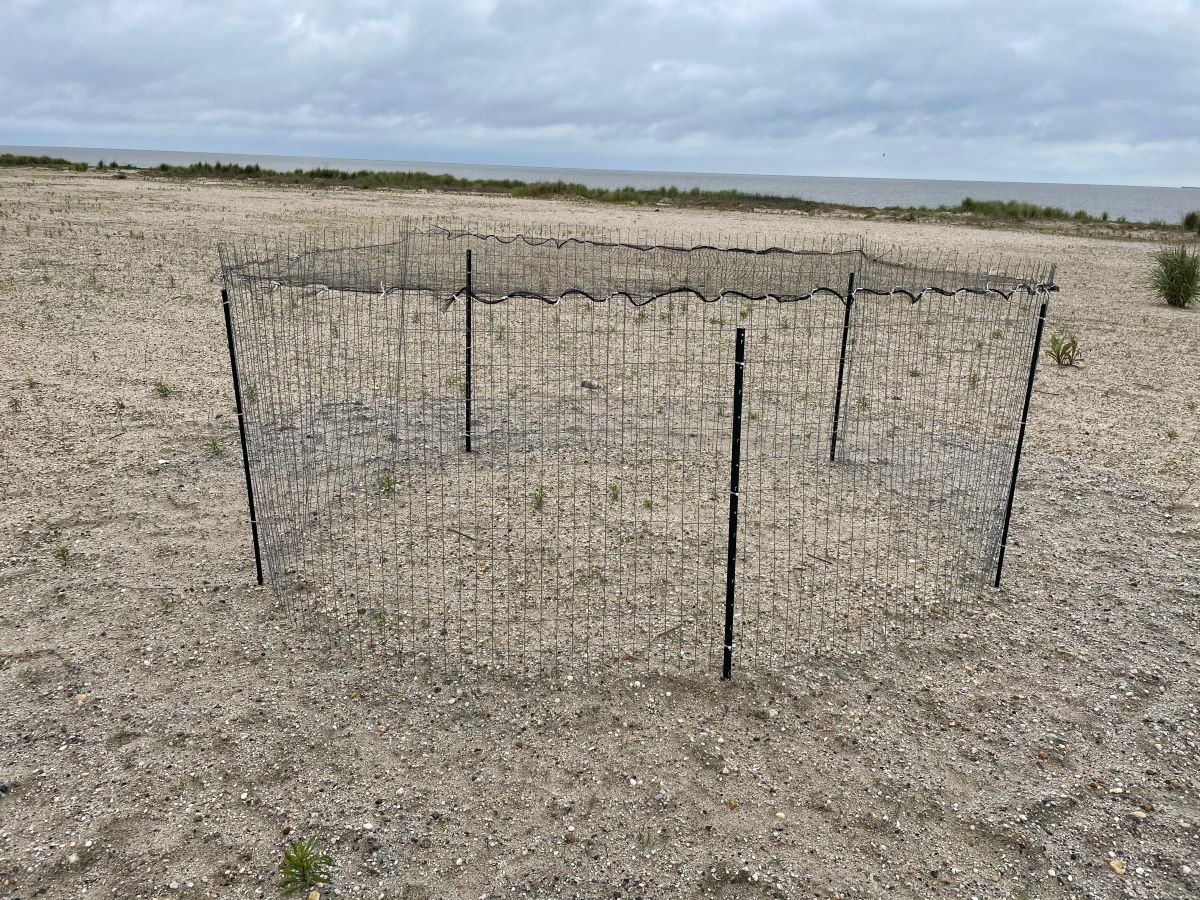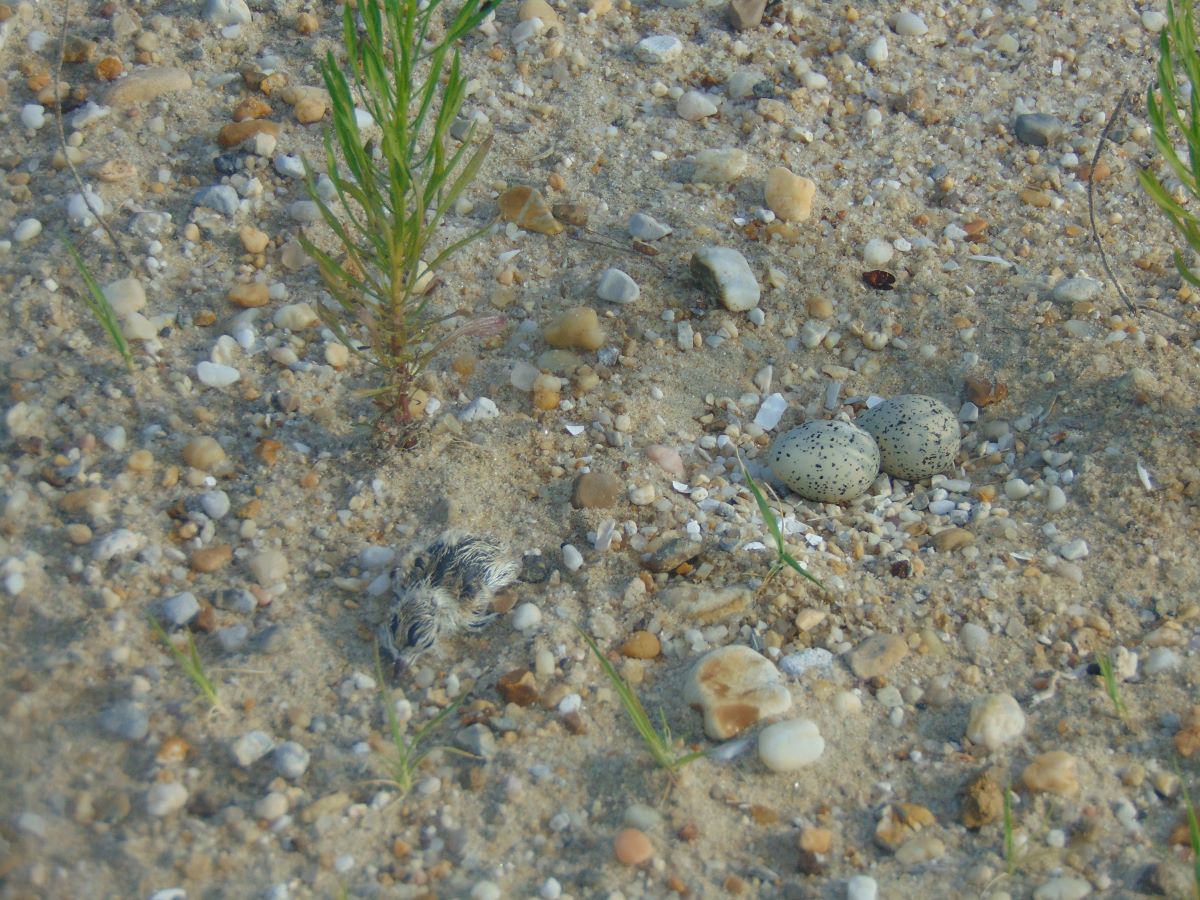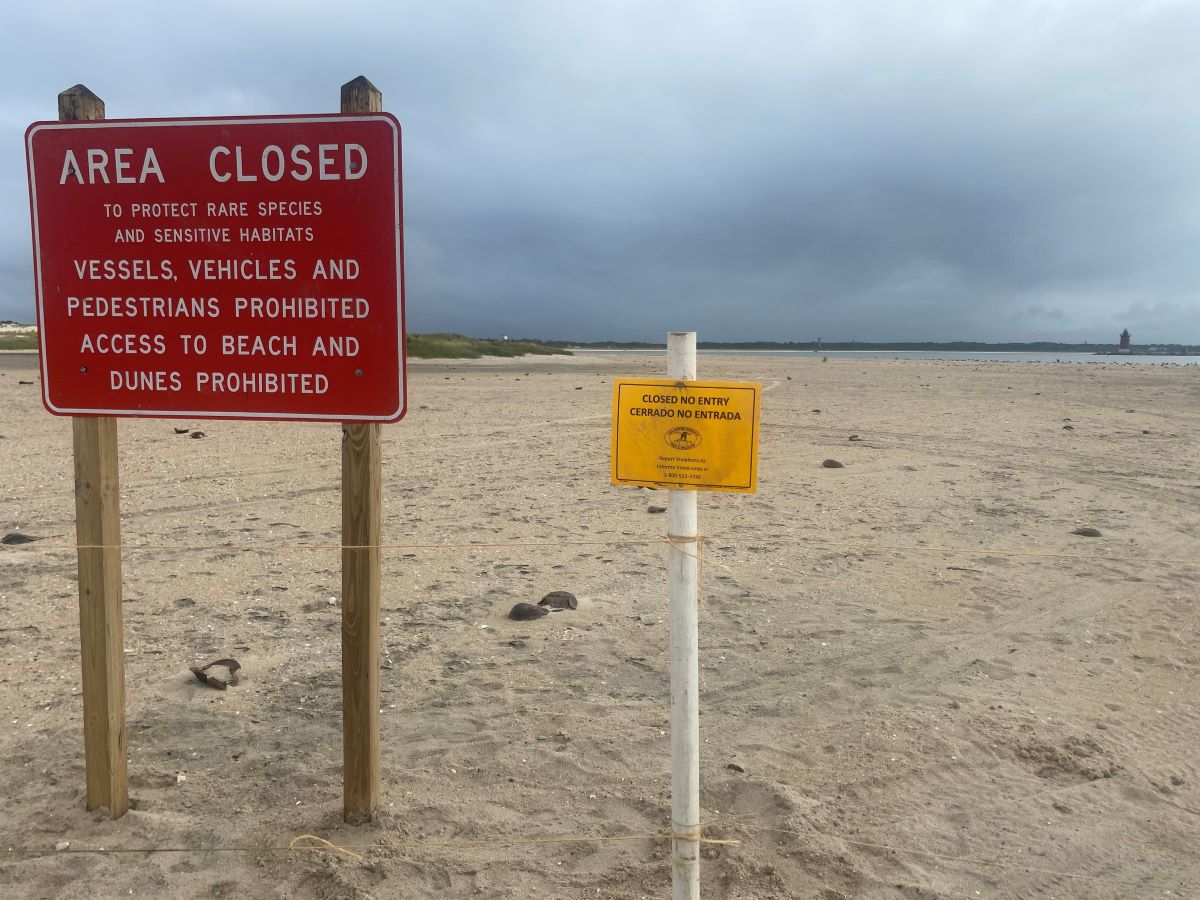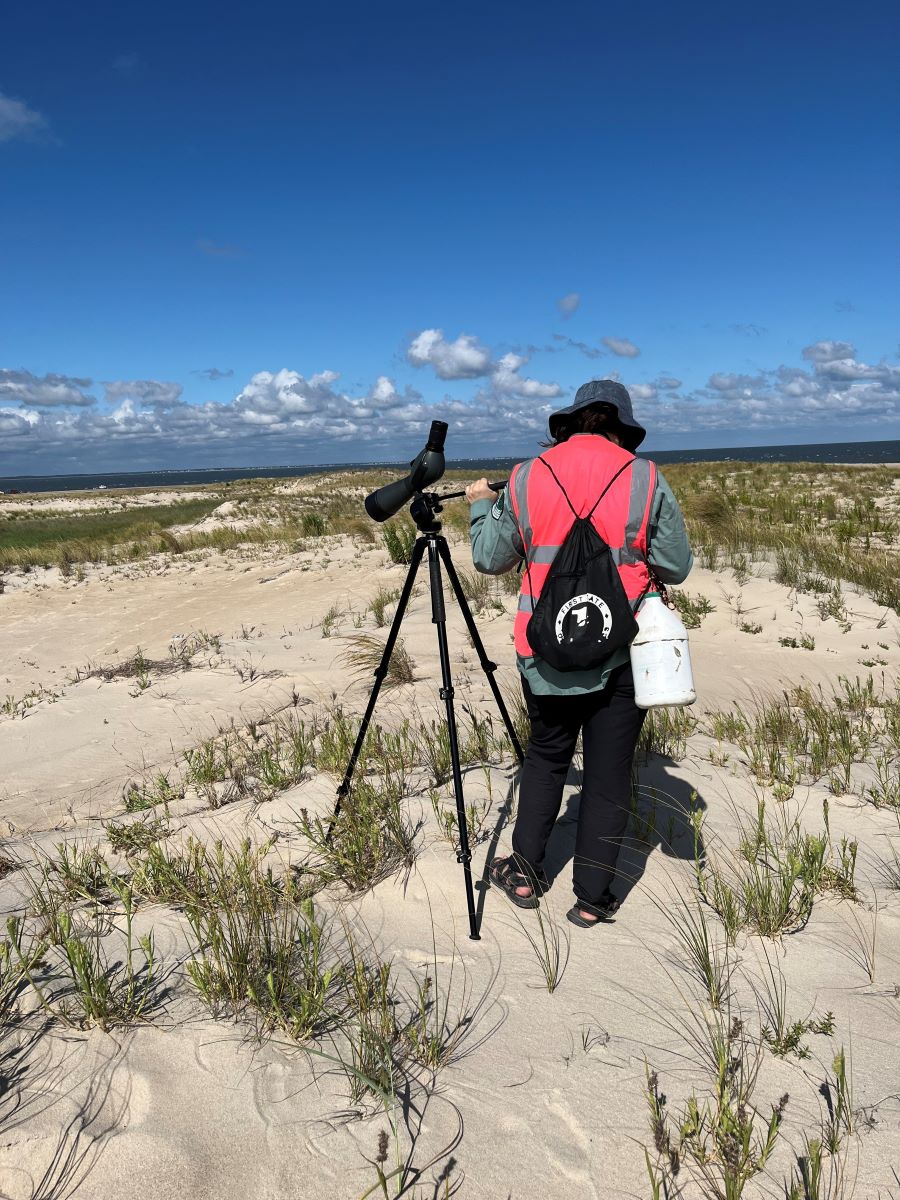Dwindling shorebird populations have landed several species on Delaware’s Endangered Species List. The DNREC Beach-Nesting Bird Program monitors the endangered breeding shorebirds, provides habitat protection, and provides information to the public about beach-nesting species.
The Beach-Nesting Bird Program primarily focuses on three species — Piping Plovers, American Oystercatchers and Least Terns. All three of these species have historically nested on Delaware’s beaches and are listed as “state endangered.”
The Point at Cape Henlopen State Park is closed from March through September each year to protect these vulnerable species.
Find information on migratory shorebirds, including include the Ruddy Turnstone, Sanderling, Semipalmated Sandpiper, Dunlin and Rufa Red Knot. on the Delaware Shorebird Project web page.

These three state-endangered species face a lot of similar threats. These include:
There are many predators that limit the number of chicks that make it to adulthood. Predators of nests and chicks include red foxes, gulls, ghost crabs and crows.
Predation is a normal ecological process, however, if predator populations become artificially inflated, it can have dire effects on beach-nesting species.
To minimize nest predation, DNREC uses nest exclosures to protect the vulnerable eggs of nesting pairs. To protect large colonies of birds — more than one nesting pair — DNREC uses electrified fences.

Human disturbance can have unintended consequences for beach-nesting birds. Beach-nesting birds and their eggs are camouflaged with the sandy beaches, making them difficult to spot. People walking by may not even notice eggs, which are found directly on the sand, or flightless chicks and possibly step on them.
Beach-goers, vehicles, boats and dogs can inadvertently scare birds resulting in abandonment or loss of eggs and chicks.
To minimize this the Point at Cape Henlopen State Park is closed annually from March through September. These closures are important in providing a safe and disturbance-free area for the birds to nest.
Increasing pollution, beach recreation, development, vegetation changes and sand loss result in reduced suitable habitat for beach-nesting birds. Protecting Delaware’s nesting habitat directly promotes the protection of these beach-nesting species.
Currently, the only two beaches closed for the breeding season, The Point and Fowler Beach, are the only two beaches in Delaware that have breeding beach-nesting birds. These birds select the habitat that is most suitable for success — large, open, sandy beaches with limited human development.
Many beaches that had once been suitable for these birds, like Delaware Seashore State Park and Fenwick Island State Park, have lost what would make them suitable for nesting. The Beach-Nesting Bird Program is dedicated to protecting and managing the habitat that these birds need to succeed.
The Atlantic Coast is expected to see an increase in the frequency and intensity of storms, due to climate change. In recent years, storm activity has flooded or buried nests in May. This means breeding pairs have to start over and exert more energy in order to hatch chicks.
If you aren’t able to volunteer, you can follow some specific steps to enjoy the beach and share it with piping plovers and their chicks.

Please walk close to the water on the lower beach, so travel-weary birds can rest on the upper beach.
Birdwatching can be a great way to pass the time and maintain wellness. Keep your distance so the birds feel safe.
Where pets are permitted on the beach, please keep them leashed and away from birds.
Remove trash and food scraps which attract animals that might eat piping plovers and their eggs.
Do not feed animals on or near the beach.
Follow all other guidance on signs, and respect all areas fenced or posted for protection of wildlife. Your actions can benefit sea turtles, terns, American oystercatchers, and black skimmers, among other animals.
For more information, please visit the Atlantic Flyway Shorebird Initiative’s website.

To ensure continued breeding success, DNREC depends on volunteers to help inform the public about the breeding progress of the plovers and the importance of staying out of closed areas.
Trespassers can cause adults to leave nests, exposing the eggs to sand temperatures of up to 120 degrees on a hot day, and can interrupt feeding efforts of adults and chicks. Well-fed, healthy birds have the best chance of survival and reproduction.
Volunteers who educate the beach-going public can help to prevent disturbance to plover adults and chicks.
Volunteers should be able to walk to monitoring stations on the beach, which can be as far as a half mile from parking areas. They will be trained to interact with the public and answer Piping Plover questions.
To volunteer, complete the piping plover volunteer form. For more information, contact Kat Christie, Coastal Avian Biologist, at 302-255-1965 or deshorebirds@delaware.gov.
Related Topics: atlantic ocean, beach nesters, beaches, birds, conservation, delaware bay, fish and wildlife, least terns, oystercatchers, piping plovers, shorebirds, wildlife